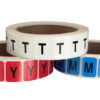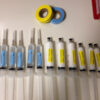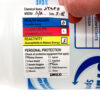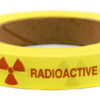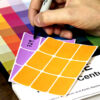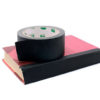The one thing a bibliophile loves is books. Having a private collection of books was a trend that many Romans indulged in. But that doesn’t mean book collecting is a lost art. The second-hand book trade has always been and continues to be a significant one, proving that more and more people are buying books for their collections. However, having a vast array of books implies that you also have a massive collection of books to sort, store, and organize, keep clean, and maintain.
Maintaining your books can be challenging, especially if you don’t have patience and the proper tools. If your books are already exposed to the elements, they may already have a reduced life span. These are some tips that can help you maintain your books and prevent future damage.
1. Ensure Proper Handling
Cloth books will hardly ever need to be repaired by cloth book repair tape if you handle them properly in the first place. Preventative care is always better (and cheaper) than repairs. There are some big don’ts to follow when it comes to handling your books. Ensure that the pages aren’t folded in at any one point, as this can lead to dog-eared pages (and permanent damage). The book should never be forced open, as this can lead to a spine crack and prompt the need for book spine repair. Store your books away from the glare of the sun. And if you have to place your bookshelf near a window, install shades over the window. The sun gives off UV rays, which may cause your books to start fading. It may also lead to brittle pages and covers.
2. Use Hinge Tape
Hinge book tape was explicitly created to repair and reinforce damaged book hinges without obstructing movement. This tape is ideal for hardback repairs and can also be used as cloth book repair tapes. Most models have an adhesive back and are made of sturdy material, making it strong enough to bind covers back to the spines of books. It is also easy to cut, making it functional and efficient. Using hinge tape on your books could help you increase their lifespan.
3. Arrange Shelves Properly
Books should be arranged in such a manner that they are standing upright, with a few exceptions. Relatively longer and larger books should be placed down flat and no more than three such books should be stacked on top of each other. This is because storing such a book upright may damage its hinges by placing all its weight on it. Remember to use cloth book repair tape to correct such damages on your books. Do not leave anything in between the pages of your book, primarily newspaper clippings. Newsprint paper is acidic and will leave a dark outline on the pages of your books.
4. Clean Your Books
Your cloth books have to be kept clean, since they come into contact with dust and other debris. You should dust your bookshelves often, and if possible, try and stand your bookshelf away from a window. Sometimes, your cloth books may gather a layer of mildew due to humid conditions. Under such circumstances, you should use a dry cloth to rub the mildew off your books, and ensure you store them in a dry place next time. If you notice any rips in your cloth books’ cover or any cracks in the spine, you should use some cloth book repair tape for the spine repair before it becomes significant.
5. Utilize Better Transportation
Suppose you are traveling abroad on vacation and want to carry some books to read on the trip. There are ways to do this without harming your books. For example, you should place them in a padded backpack, ideally in separate compartments. You don’t want two of your cloth books rubbing against each other, as this friction could lead to tears on the cloth covers. Cloth book repair tape can be used to repair these tears, but they can also be altogether avoided. Some firms even offer custom tapes to use in repairing your books.
For book lovers, there is nothing as disturbing as a tattered book. Store your books efficiently to keep them from getting damaged. You should also teach your kids how to properly handle, maintain, and repair books to ensure all your books remain in pristine condition.


